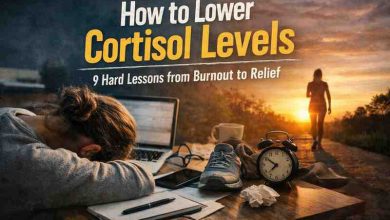
Can You Develop a Mushroom Allergy?
Yes, you can develop a mushroom allergy at any point in life. Some people are born with a sensitivity to mushrooms, while others develop it over time. Your immune system may start recognizing certain proteins in mushrooms as harmful, triggering an allergic reaction.
What Causes a Mushroom Allergy?
A mushroom allergy occurs when your immune system mistakenly identifies mushroom proteins or spores as a threat. This can happen due to:
- Inhalation of spores: Mushroom spores in the air can trigger allergies, similar to pollen.
- Consumption of mushrooms: Eating mushrooms can lead to symptoms ranging from mild itching to severe anaphylaxis.
- Skin contact: Handling mushrooms can cause rashes or irritation in some sensitive individuals.
- Cross-reactivity: If you’re allergic to mold, yeast, or fungi, your body might react similarly to mushrooms.

Mushroom Allergy Symptoms Causes and the Best Ways to Manage It
Are Mushroom Allergies Linked to Mold Allergies?
Yes! Since mushrooms and mold are both fungi, those allergic to mold spores might also react to mushrooms. Foods like aged cheese, yeast, and fermented products can also cause symptoms in individuals sensitive to fungi.
Common Symptoms of a Mushroom Allergy
Mushroom allergy symptoms can range from mild to life-threatening. Here’s what to watch out for:
Mild Symptoms:
- Sneezing
- Runny nose
- Itchy or watery eyes
- Skin rash or hives
- Digestive issues like nausea or bloating
Severe Symptoms (Anaphylaxis):
- Swelling of the lips, tongue, or throat
- Difficulty breathing or wheezing
- Dizziness or fainting
- Rapid heartbeat
- Severe stomach cramps, vomiting, or diarrhea
🚨 If you experience severe symptoms, seek emergency medical attention immediately.
How Is a Mushroom Allergy Diagnosed?
Doctors use various tests to confirm a mushroom allergy:
1. Skin Prick Test:
A small amount of mushroom extract is pricked into your skin. If you’re allergic, a raised bump will appear within 20 minutes.
2. Blood Test (IgE Antibody Test):
This measures the presence of allergy-specific antibodies in your blood.
3. Food Challenge Test:
Under medical supervision, a small amount of mushroom is given to monitor for a reaction.
Best Treatments for a Mushroom Allergy
If you have a mushroom allergy, treatment depends on the severity of your symptoms:
Over-the-Counter Medications
- Antihistamines (e.g., Benadryl, Zyrtec) can relieve mild symptoms.
- Corticosteroids reduce inflammation from more intense allergic reactions.
Emergency Treatment for Severe Reactions
- Epinephrine (EpiPen): A life-saving injection used for anaphylaxis.
- Oxygen therapy or IV fluids may be required in a hospital setting.
Allergy Immunotherapy
- Allergy shots (allergen immunotherapy) can help build long-term resistance to allergens.
- Sublingual immunotherapy (SLIT) involves placing allergy drops under the tongue to improve tolerance over time.
How to Prevent Mushroom Allergies
While there’s no cure for mushroom allergies, you can take precautions to prevent reactions:
1. Avoid Mushrooms and Related Foods
- Skip fresh, dried, or cooked mushrooms.
- Avoid foods with mushroom extracts, truffle oils, or yeast-based ingredients.
- Be cautious with fermented foods like soy sauce, kombucha, and blue cheese.
2. Read Food Labels Carefully
Mushrooms are often used in soups, sauces, and processed foods. Always check ingredient lists.
3. Take Precautions in the Kitchen
- Cook in a well-ventilated area to avoid inhaling spores.
- Wash utensils and surfaces thoroughly if they come in contact with mushrooms.
4. Use Protective Gear
If you work in environments with high fungal exposure (e.g., farms, food processing units), wear masks and gloves.
FAQs About Mushroom Allergy
Can Mushroom Allergies Be Airborne?
Yes! Mushroom spores can become airborne and cause allergy symptoms like sneezing, itchy eyes, or breathing issues.
What Does a Mushroom Allergy Feel Like?
Symptoms can range from mild hives to severe throat swelling and difficulty breathing. Some may experience digestive discomfort.
Can You Be Allergic to One Type of Mushroom But Not Others?
Yes. Some people react only to specific mushroom species due to different protein compositions.
What Foods Should You Avoid?
- Mushrooms (all types)
- Truffles
- Foods with mushroom extracts or powders
- Aged cheese, yeast, and fermented foods (if cross-reactivity occurs)
Can Store-Bought Mushrooms Cause an Allergic Reaction?
Yes, if you’re allergic. Even handling them can trigger symptoms.
Are Mushroom Allergies Common?
Mushroom allergies are less common than pollen or nut allergies, but they can be severe.
Final Thoughts
Mushroom allergies can be mild or life-threatening, making early diagnosis and prevention crucial. Whether you react to airborne spores or ingesting mushrooms, taking the right precautions can help you live symptom-free. Always consult an allergist for personalized treatment options!
📢 If you found this article helpful, share it with friends and family who might benefit!



